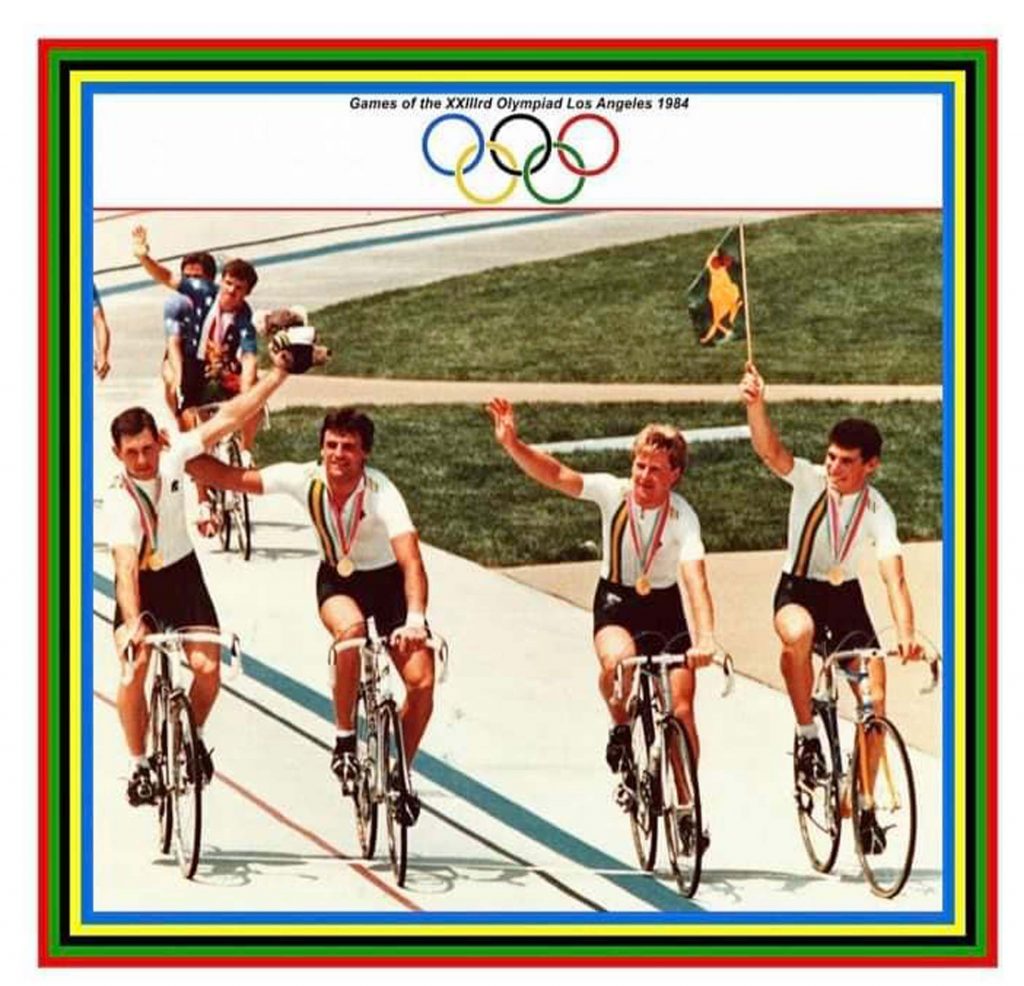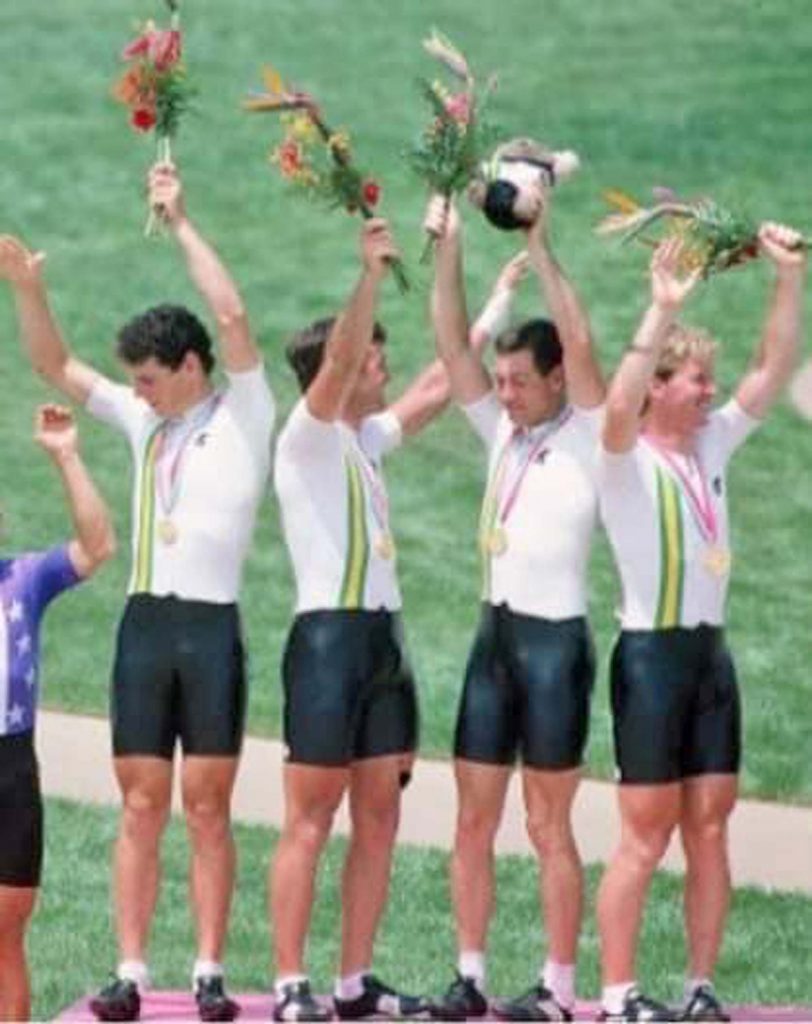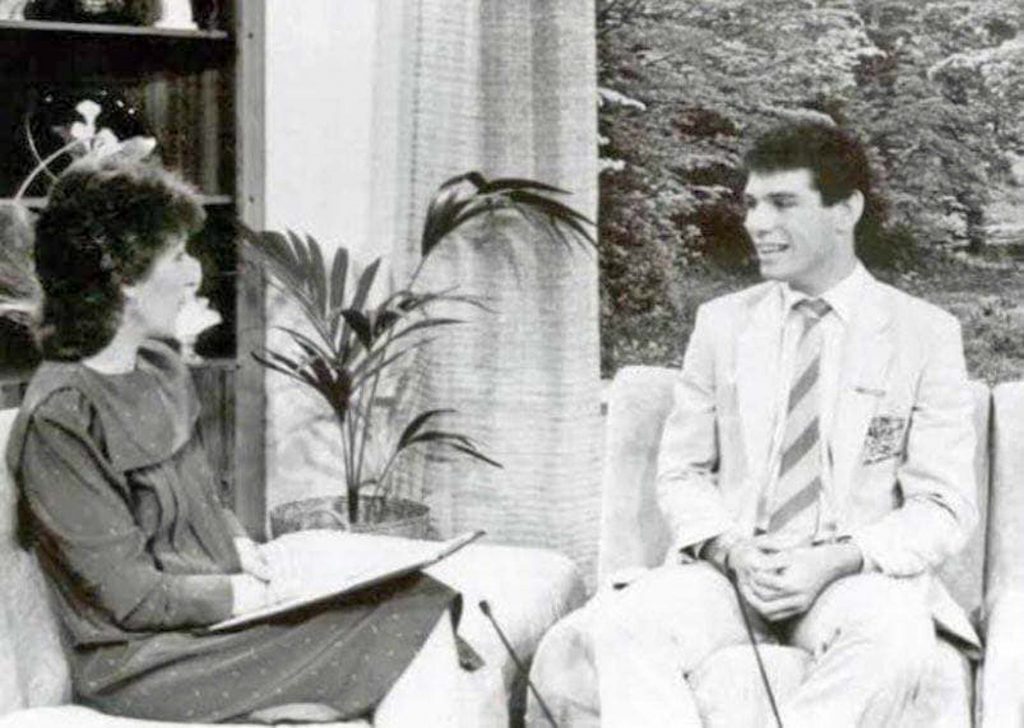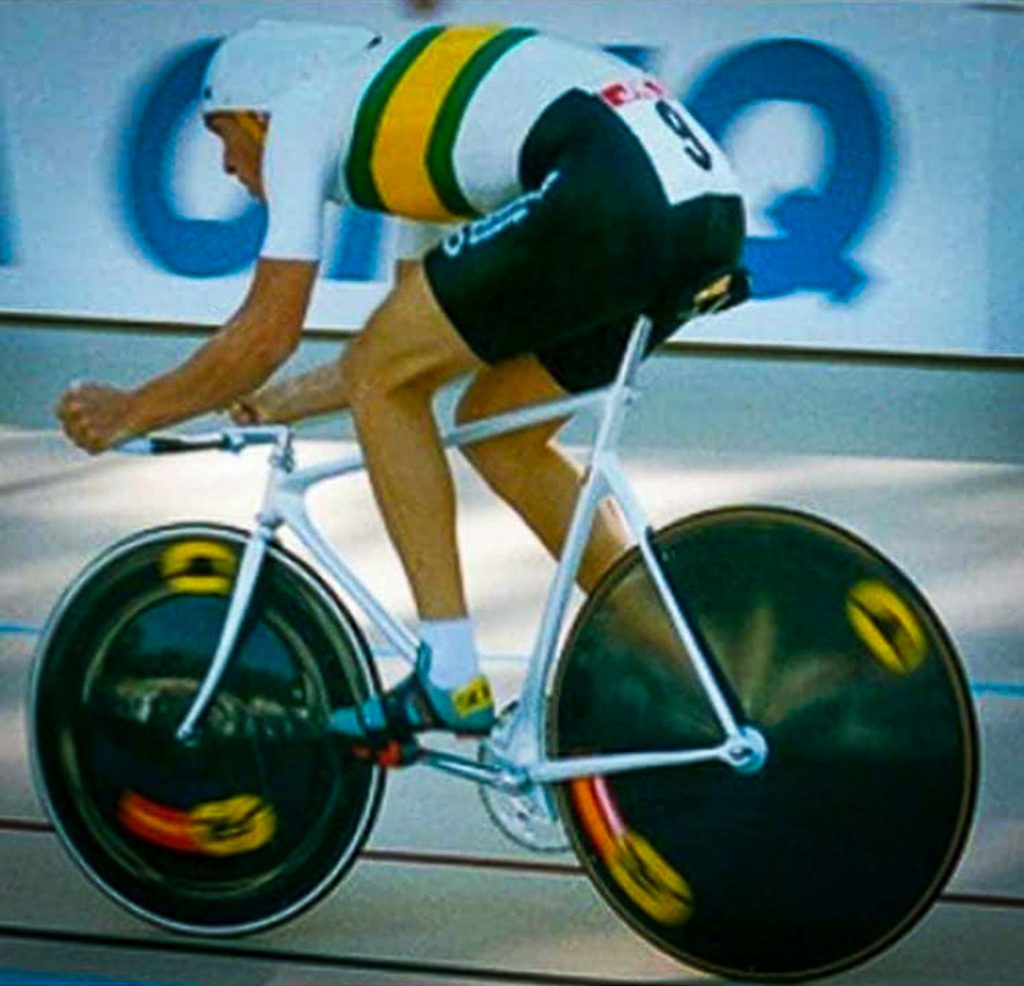He had a presence and a drive that made him a cycling champion at a young age, but Dean Woods will be remembered for being much more than just a bike rider. He was a man who was ahead of his time in many ways…
– By Rob Arnold
The tributes have started to flow for this 55-year-old Australian who passed away from cancer yesterday. From the AOC to The Age, there has been recognition of the impact Dean Woods had and much of the commentary relates to what he achieved as a cyclist. It was, after all, his racing credentials that earned him fame in his teenage years and once he’d won an Olympic medal at the age of 18, it was destiny that this tag would stay with him for the rest of his life.
There will be variations to the theme but most articles about Dean Woods will make reference to a team pursuit on an outdoor concrete velodrome in Los Angeles in 1984. It was this final, raced against riders from the host country, that gave cycling prominence in Australia.
And it was the gold medal won by Woods, Michael Grenda, Kevin Nichols and Mick Turtur that guaranteed ‘Olympic Gold medallist’ would be part of many future references for all involved.
The opening line of the tribute in The Age reads: “Australia’s four-time Olympic medallist Dean Woods is being remembered for his feats in cycling after he died on Thursday, aged 55.”
Still, there is so much more to the story of Dean Woods than the 4:25.99 it took the Australian quartet to ride around a 333m velodrome against Team USA in the Olympic team pursuit final all those years ago. That victory in LA, however, set the Victorian junior up for a 20-year-career where he would become a cycling pioneer on the track and road who would set many precedents.
He was passionate about cycling and it’s logical to reference his accomplishments as a cyclist, for there were many, but there’s more to the man than what he did on the bike.
He was ahead of his time in many ways, not only because he joined a seasoned trio that day in LA in 1984 and stood on the podium as Olympic champion, when he was still essentially a junior.
Shortly after finally calling time on his racing days, he would establish a cycling business, selling products via mail-order, even before the online retail revolution had begun.
‘Dean Woods Direct’ was an apt title for his business. It describes what customers could do – buy direct from his shop (that had a base in Wangaratta) – and have items delivered via mail-order, no matter where they were in Australia.
In conversation, he was also particularly direct. Woods didn’t mince words when it came to expressing his frustrations on a range of topics. If he was responding to traditional retailers who called him out for the nature of his bike shop business or commenting on the administration of cycling many years after his racing days, he was often blunt with his opinions.
He wrote passionately about what was good about cycling and didn’t mind expressing himself when he saw something he believed was wrong. His very direct manner may have put him offside with some in positions of power, but that didn’t mean he’d back down.
He was a force on the bike, and adamant and opinionated off it. And that’s how many who knew Dean Woods will remember him.
In 2018, when changes were taking place in Australian cycling administration, he offered his take on matters in an article he submitted to RIDE Media. It offers an insight into how he saw the sport he remained involved with all his life. Again, it was direct, full of opinion, and particularly insightful.
“Now,” Woods wrote in 2016, “before many of you start preaching about how ‘track is dead’, or ‘who rides the track?’ etc. results in track cycling have always – and will continue to be – the cash cow for CA [Cycling Australia]. The only problem is the efficiencies and strategies are not there to be more effective in capitalising on opportunities with its success and help develop cycling outside the HPU.”
There is, of course, much more to his commentary than criticism alone. He was willing to offer solutions to problems and he insisted that maintaining a status quo was not how cycling would progress.
Now that tributes are being written, he would surely take some pleasure in knowing that the current administrators of cycling in Australia will need to recognise his contributions… and perhaps he’d even relish how some would squirm a little because his opinions later in life weren’t always kind about how his sport was being managed.
AusCycling has indeed offered a tribute to a rider who is fittingly described by many as a “legend” in Australian cycling, but those in power now would also be well aware of the frustrations he had with the way funding was allocated and what priorities were given to different aspects of the sport’s administration.
The tribute to Woods lists many of his cycling accomplishments – as a track and road racer – and highlights the versatility of a rider who personified the pioneering spirit that was required for Australians to succeed on the world stage.
Had Woods raced with the advantages contemporary Australian riders have, it is fair to say he would have achieved even more than he did in the 1980s and 1990s when the sport he loved so much was only becoming established in this country.
When he raced he responded to attacks with brute force and with a pedalling action that was glorious to watch, supple and smooth, Woods made cycling look graceful and elegant.
He learned the art of cycling early as a track specialist and this served him well later in life when he took to the road and competed on the international stage for more than a decade. His pioneering spirit lured him to Europe and he would race as a pro on the road with the early iterations of what became the behemoth team later known as ‘Deutsche Telekom’, or ‘T-Mobile’. But he was gone, retired from racing, by the time the infamous magenta outfit truly began its rise up the rankings in the pro peloton.
When he was a businessman, he didn’t like to back down. There was plenty of push-back against his ideas of how retail should be in the early-1990s when Dean Woods Direct was established, but he insisted the mail-order model had merit. He was a retailer who also acted as an agent for several products – including, for example, Gore inner cables for smoother shifting of gears – and that allowed him to keep prices low and gain a foothold in the market.
Customers could get the products they wanted, and they could often save money too, but it upset other bike shops and plenty of battles ensued. Still, he persisted and insisted the concept was correct; it was good, he said, for everyone involved even if it put him on the outer with some in the industry.
When he became proactive with commentary about the nature of sporting administration, he maintained his very direct tone, and he didn’t care who agreed or disagreed. He was well known for his passionate online posts and wasn’t the kind of bloke who’d back down from an argument.
Dean Woods achieved a lot and had plenty to say. His legacy is huge and his passing marks a moment in time when the Australian cycling community will remember an elegant rider who burst onto the international racing scene when he was still a kid. He competed at a high level for 20 years and remained involved in cycling all his life.
He was a man who stood up for what he believed in, and he achieved a great deal in a sport that was anything but professional during his halcyon times as a racer. He was much more than the ‘Olympic gold medallist’ title that remained with him throughout his life and yet scrapbooks around the country will now be pulled out and clippings considered.
Fans of cycling will look back on old articles and faded photos and be reminded of a kid who became a man while racing his bike. They’ll see his toothy grin, his impressive form, and the elegant pedalling action all on display.
And inevitably, there’ll be memories of that day in LA when he teamed up with a trio of other Aussies and put cycling in the headlines.
Dean, we salute you and your passion for something that is beautiful. The cycling world has lost a true pioneer.
– By Rob Arnold
Detour Podcast – Remembering Dean Woods (click the link below)






